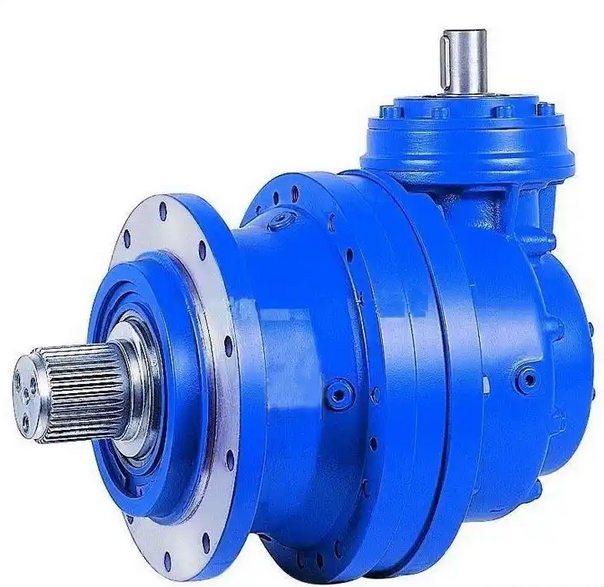Using the wrong type of lubricating oil in a P2NA9 planetary gearbox can lead to several consequences, such as increased wear and tear, reduced efficiency, and potential damage to the gearbox componen
Improper use of lubricating oil for P2NA9 planetary gearbox may result in the following consequences:
Seal damage: Inappropriate lubricating oil may react chemically with the sealing material of the gearbox, accelerating the aging and wear of the seal, causing it to lose its sealing performance and resulting in oil leakage. This not only pollutes the working environment, but also leads to insufficient lubricating oil inside the gearbox, further affecting its normal operation.
Increased gear wear: If the viscosity of the lubricating oil is not suitable, such as too low, it cannot form a sufficient thickness of oil film on the gear surface, which will cause direct contact between the gear surface, increase friction, and lead to increased wear. Long term use of inappropriate lubricating oil may also cause gear failure such as pitting and bonding, reducing the accuracy and strength of the gear and shortening its service life.

Bearing damage: Improper lubricating oil cannot provide good lubrication and protection for the bearing, which will increase the friction of the bearing, generate excessive heat, and accelerate the wear and aging of the bearing. After the bearing is damaged, it will affect the operating accuracy of the gearbox, and even cause problems such as lagging and abnormal noise in the gearbox.
Excessive oil temperature: Inappropriate lubricating oil may have poor heat dissipation performance or generate too much heat during gear mixing, leading to a rapid increase in oil temperature. Excessive oil temperature can further reduce the viscosity of the lubricating oil, affecting the formation and stability of the oil film. At the same time, it can accelerate the oxidation and deterioration of the lubricating oil, causing damage to the internal components of the gearbox.
Deposit formation: Poor quality or unsuitable lubricating oil can easily form deposits on the surface of gears, the inner wall of reducers, and other parts. These deposits can affect the heat dissipation effect of reducers, reduce operating efficiency, and may also block oil passages, preventing the normal circulation of lubricating oil and leading to poor local lubrication.
Reduced transmission efficiency: Due to the increased friction of components such as gears and bearings, as well as the inability of lubricating oil to meet transmission requirements, the transmission efficiency of the gearbox will decrease, energy consumption will increase, and it may also affect the overall operational performance of the equipment.
Increased noise and vibration: Poor lubrication can cause unstable operation of internal components, resulting in additional noise and vibration. This not only affects the working environment, but may also reflect the worsening damage to the internal components of the gearbox, requiring timely maintenance.
Equipment failure and shutdown: Long term use of improper lubricating oil can gradually damage various components of the gearbox, ultimately leading to equipment failure or even shutdown. This will have a serious impact on production, increase maintenance costs and downtime, and cause economic losses. In addition, improper use of lubricating oil may also lead to the invalidation of machine warranty and increase the operating costs of the enterprise.

